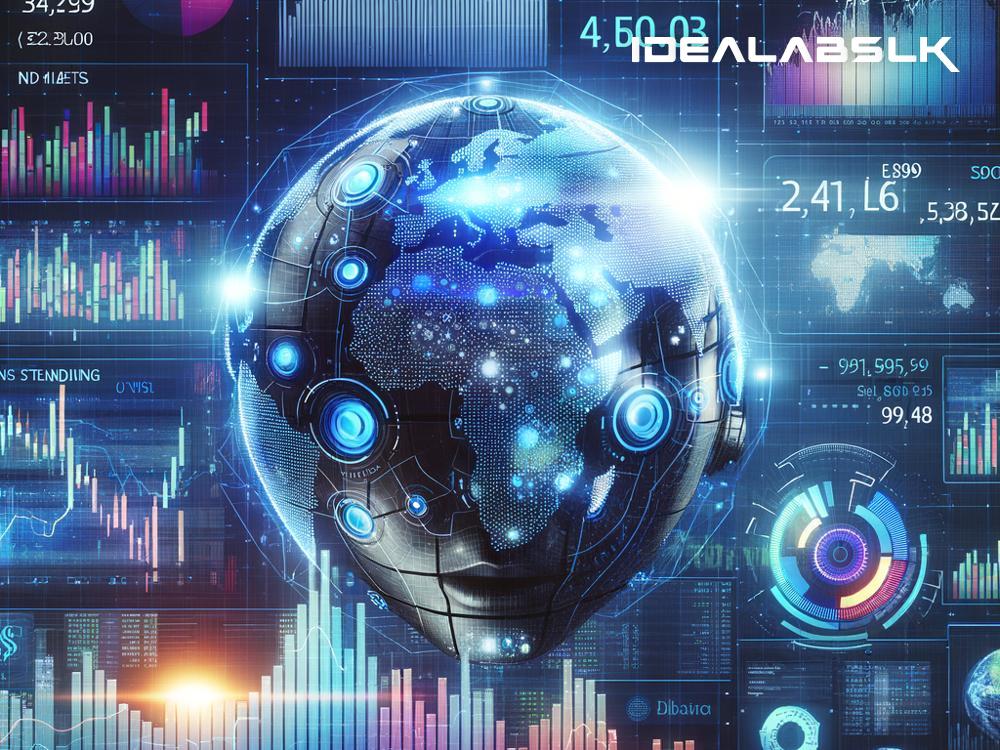AI in Trading: How Predictive Analytics is Enhancing Trading Performance
The world of trading is undergoing a monumental shift, thanks to the revolutionary impact of Artificial Intelligence (AI), particularly through predictive analytics. Picture a world where you can forecast market trends with remarkable accuracy, edge out competitors with lightning-fast decision-making, and optimize your investment strategies—all powered by AI. This is not a scene from science fiction; it's the reality of today's trading landscape.
Understanding Predictive Analytics in Trading
At its core, predictive analytics involves using historical data, statistical algorithms, and machine learning techniques to predict future outcomes. In the realm of trading, this means anticipating market movements, identifying profitable trading opportunities, and minimizing risks even before they become apparent.
Imagine having a crystal ball that gives you a glimpse into the future of stock prices, currency values, or commodity trends. Predictive analytics is the technological equivalent of this crystal ball, offering traders insights that were unimaginable just a few decades ago.
The AI Revolution in Trading
The AI revolution in trading is propelled by vast amounts of data. Every day, the financial markets generate a staggering volume of data from trades, news, reports, and social media. Processing this information manually isn't just challenging; it's practically impossible. This is where AI and predictive analytics come into play, sifting through the noise to find valuable signals.
AI systems are trained using historical data to recognize patterns and correlations that humans might miss. These systems can analyze market conditions, news sentiment, and economic indicators in real-time, providing traders with actionable insights.
Enhancing Trading Performance with AI
Here's how predictive analytics is enhancing trading performance in tangible ways:
-
Improved Accuracy of Predictions: AI models can process more data at a faster rate than any human, improving the accuracy of market predictions. This capability allows traders to make more informed decisions and, ideally, more profitable trades.
-
Risk Management: By forecasting market downturns and identifying risky assets, AI helps traders minimize losses. It's like having an early-warning system that signals when to hold back or pull out, thus protecting investments.
-
Speed: In trading, timing is everything. AI's ability to process and analyze data in real-time means traders can react instantaneously to market changes, securing advantageous positions before competitors even sense an opportunity.
-
Personalized Trading Strategies: AI can tailor trading strategies to match individual risk appetites and investment preferences, creating a personalized trading experience. This customization ensures that strategies align closely with goals, maximizing returns.
-
Cost Reduction: By automating routine tasks and improving the efficiency of trading operations, AI reduces operational costs. These savings can then be passed on to clients or reinvested to further enhance trading performance.
Real-World Application and Success Stories
Several hedge funds, investment banks, and individual traders have already begun harnessing the power of AI and predictive analytics, reaping significant rewards. From using AI to predict stock market trends with unprecedented accuracy, to deploying sophisticated algorithms that can adapt to changing market dynamics in real-time, the success stories are mounting.
One notable example is the use of AI by quantitative hedge funds, which integrate vast datasets and advanced algorithms to drive investment decisions. These funds have consistently outperformed traditional funds, highlighting the effectiveness of AI in enhancing trading performance.
The Future of Trading with AI
The integration of AI in trading is still in its infancy, with far-reaching potential that is yet to be fully tapped. As AI technologies evolve and become more sophisticated, their impact on trading will only deepen. We can expect even more accurate predictions, smarter risk management tools, and increasingly personalized trading strategies.
However, this future brings challenges as well. The reliance on AI and automation raises questions about market volatility, the potential for systemic risks, and ethical considerations. Navigating these challenges will be key to ensuring that the benefits of AI in trading are realized without unintended consequences.
Conclusion
AI and predictive analytics are transforming trading from an art into a science. By leveraging these powerful technologies, traders can enhance their performance, manage risks more effectively, and secure a competitive edge in the fast-paced world of finance. As we look to the future, it's clear that AI will continue to play a pivotal role in shaping the trading landscape, promising exciting possibilities for those ready to embrace it. The era of AI-powered trading is here, and it's redefining what's possible in the world of finance.

